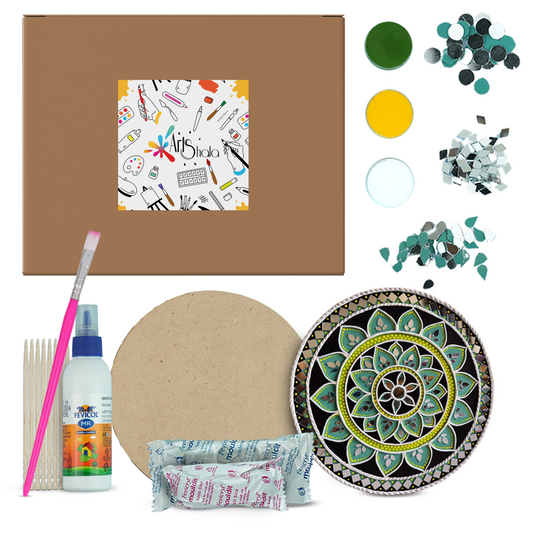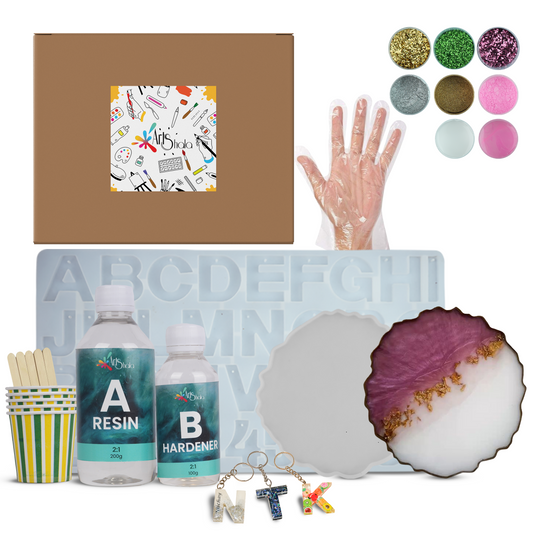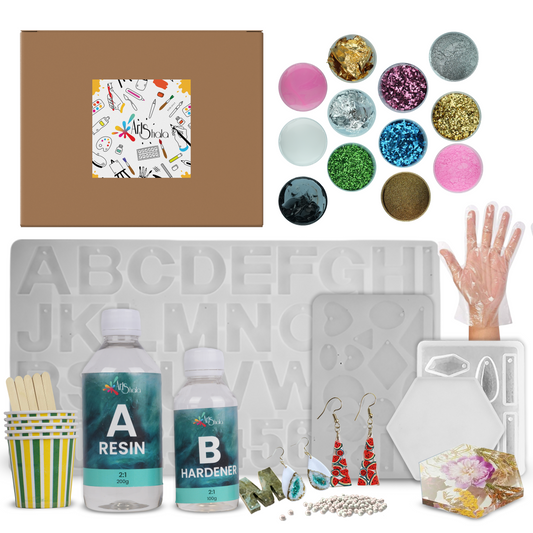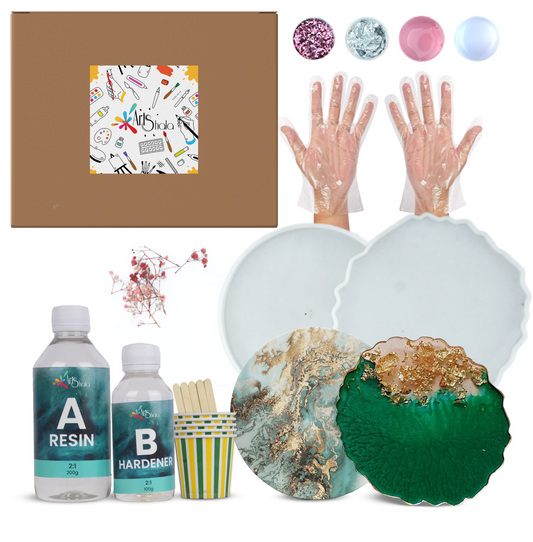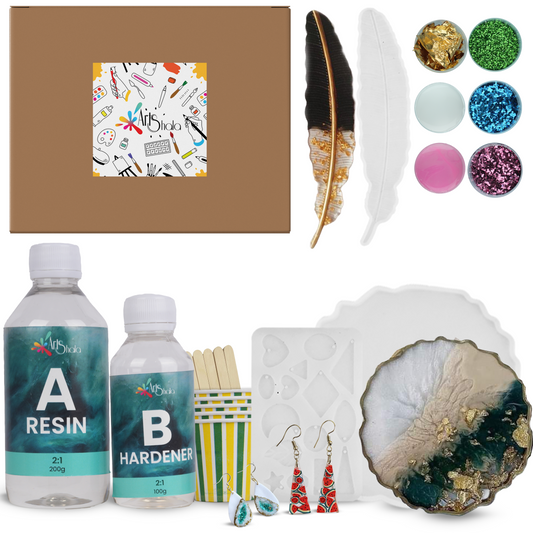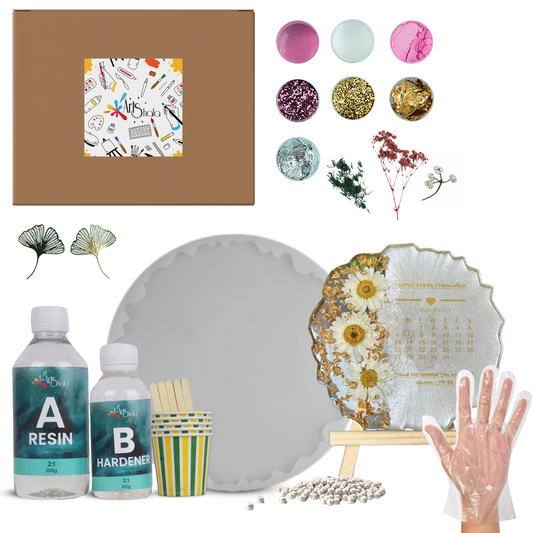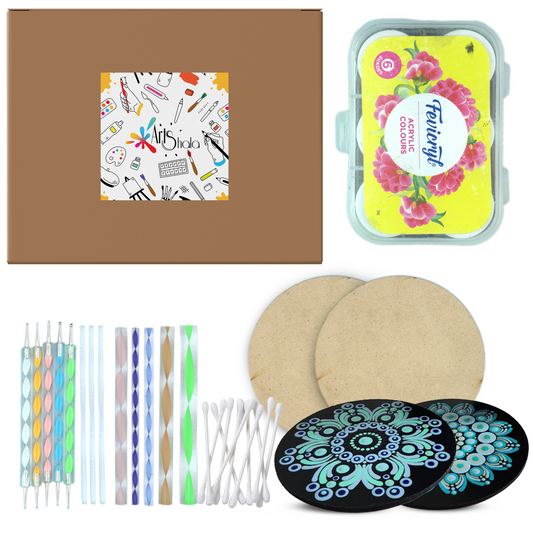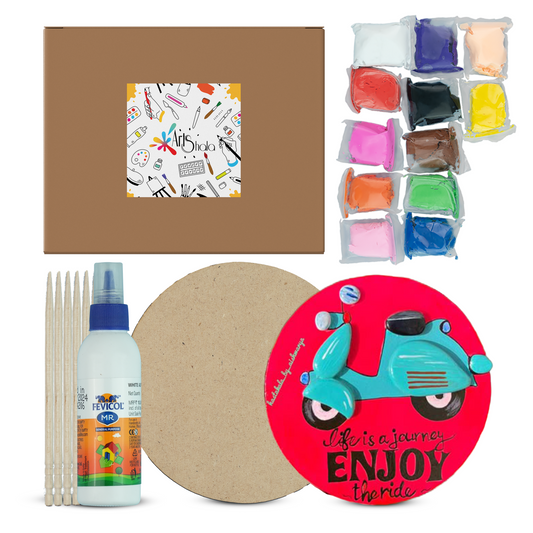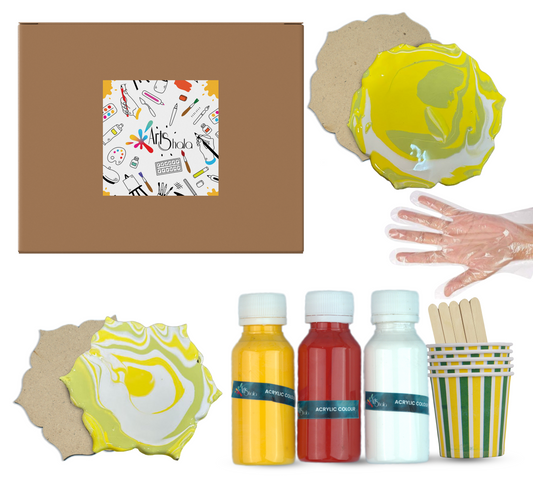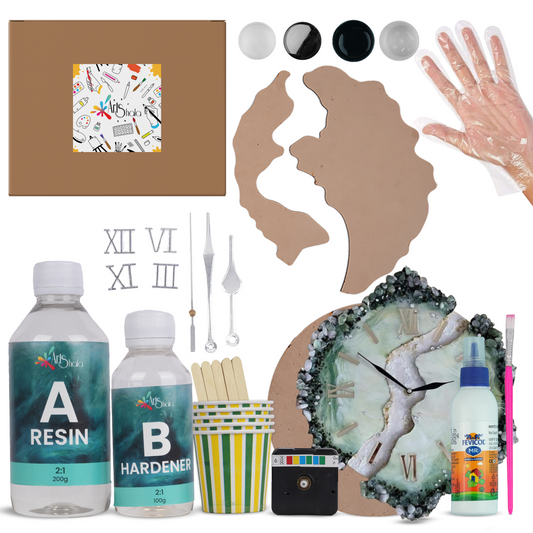Why Is My Resin Coaster Bendy? Causes & Effective Solutions
Resin coasters have gained popularity as stylish and functional artwork for home decor. These coasters are made by casting resin, a versatile material that can be mixed with colourants, glitter, or other items to create unique designs. However, one common issue you may encounter is bendiness in resin coasters.
If you're new to resin casting and want to learn more about the art of working with resin, consider joining a resin art workshop for hands-on experience and guidance on resin casting and curing techniques.
In this blog, we will explore the causes of bendy resin coasters and provide practical solutions to fix and prevent this problem. Whether you are a beginner in resin art or an experienced crafter, understanding the reasons behind bendy resin coasters can help you create durable and high-quality artwork. Now, let's get into the main topic of this blog: “Why is my resin coaster bendy?”
Insufficient Curing Time
The most common reason for bendy resin coasters is insufficient curing time. Resin typically goes through two stages of hardening: the initial cure, which is when it becomes solid enough to de-mould, and the complete cure, when it reaches its maximum hardness. Rushing the curing process by de-moulding too early can result in a soft and flexible coaster. Follow the manufacturer's instructions regarding the recommended curing time and temperature to ensure proper curing.
Incorrect Resin to Hardener Ratio
Another factor that can contribute to bendy coasters is an improper resin-to-hardener ratio. Resin systems usually consist of resin and hardener components that must be mixed in precise proportions for optimal curing. Deviating from the recommended ratio can lead to incomplete polymerization, resulting in a weak and flexible final product. Use a digital scale to measure the components accurately and mix them thoroughly to ensure a proper ratio.
Insufficient Mixing
Insufficient mixing of resin and hardener can also result in bendy coasters. Proper mixing is essential for achieving a solid blend and promoting complete chemical reactions during curing. Be sure to scrape the sides and bottom of your mixing container as you stir to incorporate all the resin and hardener. Consider using a stir stick or a drill with a paddle attachment for larger batches to ensure thorough mixing.
Thin Layer of Resin
Applying a thin layer of resin can contribute to the problem of bendiness for coasters. When the resin layer is too thin, it may not have enough structural integrity to resist bending or warping. The ideal thickness requirement for a standard coaster size is at least 1/8 to 1/4 inch to avoid warping and bending issues. Thicker layers of resin provide better support and durability, reducing the risk of bendiness in the finished product.
Excessive Use of Colourant
Adding too much colourant to the resin mixture can significantly affect its stability and curing process. The extra colourant can disrupt the chemical reaction between the resin and hardener, changing how long it takes for the coaster to harden and resulting in a flexible or squishy texture. Measure and add colourants correctly, and stay within the recommended amount so the resin stays strong and sets accurately.
How Environmental Factors Affect Resin Curing?
Exposure to high temperatures or moisture in the surrounding environment can damage the curing and hardening of resin, leading to bendiness in resin coasters. These environmental factors can interfere with the chemical reaction that takes place during the curing process, compromising the resin's ability to fully solidify and cure properly.
High-Temperature Effects
High temperatures can accelerate the curing process, causing the resin to cure too quickly before it can level out and settle evenly. This can result in uneven resin distribution, leading to distorted shape and bending of the coaster. Additionally, excessive heat can cause the resin to become more fluid, making it prone to sagging and losing its shape.
Moisture Effects
Moisture is another factor that can negatively impact the curing process of resin. When exposed to moisture, the resin can absorb water molecules from the air, interfering with its chemical reaction and preventing it from fully curing. This can result in a soft and bendy texture in the finished coaster.
Other Possible Contributors to the Issue
- Improper Storage: Improper storage conditions can lead to resin contamination, affecting its chemical composition and leading to curing issues. Exposure to direct sunlight, extreme temperatures, or humidity due to poor storage can result in inconsistent resin quality and potentially contribute to bendy coasters.
- Acrylic Paints: Using certain types of acrylic paints in resin art may introduce chemicals or additives that interfere with the curing process, potentially causing flexibility or softness in the final product. It's essential to ensure compatibility and suitability when incorporating acrylic paints into resin projects.
Fixing and Preventing Bendy Resin Coasters
When you find yourself with a bendy resin coaster, don't worry! There are steps you can take to fix the issue and prevent it from happening again in the future. Follow these simple instructions to ensure your resin coasters will be solid and durable:
Allow for Complete Curing
The first step in fixing a bendy resin coaster is to ensure it is fully cured. While thin items may remain slightly flexible even after the initial curing period of 12-24 hours, complete curing typically takes around 72 hours. Give your coaster enough time to cure before attempting any fixes.
Measure and Mix Accurately
One of the common causes of bendy resin coasters is inaccurate measuring or mixing of the resin components. Ensure to follow the recommended volume mixing ratio provided by the epoxy manufacturer. Thoroughly mix the resin and hardener for at least 3-5 minutes to ensure proper blending.
Limit Colourant Use
Excessive use of colourant can affect the stability and cure of resin, potentially leading to bendiness. Adding less than 6% of colourant to the total volume of resin and hardener is recommended.
Maintain Optimal Resin Temperature
Environmental factors, such as high temperature, can negatively impact the curing process of resin and result in bendiness. To prevent this, maintain a consistent temperature between 75-85℉ (24-30℃) during the entire curing process.
These steps can effectively fix a bendy resin coaster and prevent future issues. Remember, patience is critical when working with epoxy resin. Allowing sufficient curing time and ensuring accurate measuring and mixing are essential for creating durable and functional resin coasters. So, don't get discouraged if you encounter a bendy resin coaster; follow these guidelines, and soon, you'll have beautiful, sturdy coasters ready to use or sell.
Conclusion
To create durable and functional resin coasters, it is crucial to address the issue of bendiness. Applying the techniques discussed in this blog can effectively fix and prevent bendy resin coasters.
Remember, creating beautiful resin coasters is not just about aesthetics; it's also about ensuring their usability and durability. So, experiment with different designs, colours, and techniques and enjoy working with resin.
If you want to learn more about resin arts and crafts, Contact Us on Arts Shala today. Our workshops provide comprehensive guidance on resin casting and curing techniques, allowing you to explore this fascinating art form further.


